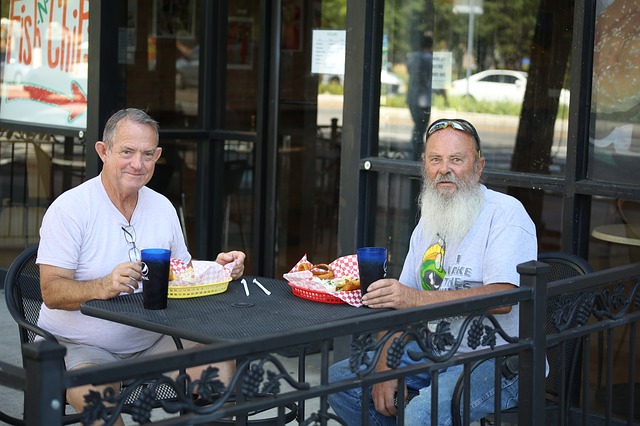The difference between sitting and sharing a meal with someone
Reflections
The Rev’d Andrew Schmidt explores the meaning of the Hebrew word ‘Chesed’, which blends loving kindness, generosity and engagement in its meaning, and its implications for us as followers of Christ

When I still worked in schools. I came across a task that an English teacher had set, which I thought was brilliant. To pick a villain, an antagonist, and to write the person a love letter, explaining why you loved him or her. The idea was to help the students write better villains, and to help them to understand that no one is the villain of their own story. The goal behind the goal was to build empathy in the students, to help them see others as being more than just cardboard cut-outs, and to recognise that all people have a depth of experience to their lives.
Advertisement
The truth is, we are all the protagonists of our own stories, and mostly wish to be seen as the hero. Maybe a tragic hero who has been backed into an untenable position, the hard done by, misunderstood, mistreated hero, the misunderstood man or woman of conviction. The realisation is that we all want to see ourselves as good people, but sometimes the question of what is good in our circumstances is difficult.
In the Old Testament Scriptures there is a good word, a great word even, which unfortunately does not have a direct English translation, which might give us some guidance, especially in 2019’s ‘Year of Generous Hospitality’.
Chesed
It is a Hebrew word that seems to blend loving kindness, with acts of generosity and engagement. My favourite demonstration of Chesed is Ruth in her response to Naomi. If you haven’t read anything from the Old Testament in while, that is a great book to read.
In the story we see care for Naomi as a person, rather than just abstract care. An analogy may help — think of the difference between sitting and sharing a meal with someone, or just giving him or her some food and moving on. Chesed calls us to care and engagement, to seeing the other as being of value for who they are
For Jews and Christians alike we see first that God demonstrates Chesed with us, and then we respond.





